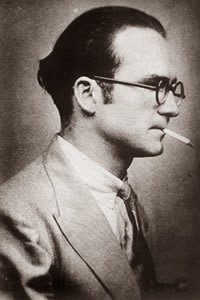Temple of Apollo, Didyma, Anatolia
Columns of Apollo's fallen temple still stand tall against the
sky. At the gate of the precinct are three Medusa heads; be careful how you go
here. We walk past stone lions and carved bull’s heads and mount the steps of
the outer temple.
The walls of the inner temple are only a third their original size, but still rise high above us as we go down towards the sacred spring, where the oracle once sang through the vocal chords of an inspired prophetess.
Blessedly, there are few tourists at the Temple of Apollo today. Shall I call to him? I decide to take the risk.
In the inner temple, facing the sun, I join hands with the friends who have joined me on this expedition and we sing the words in classical Greek that call on Apollo Paian, Apollo the All-Healer, to awaken. I will not transcribe those words here.
The walls of the inner temple are only a third their original size, but still rise high above us as we go down towards the sacred spring, where the oracle once sang through the vocal chords of an inspired prophetess.
Blessedly, there are few tourists at the Temple of Apollo today. Shall I call to him? I decide to take the risk.
In the inner temple, facing the sun, I join hands with the friends who have joined me on this expedition and we sing the words in classical Greek that call on Apollo Paian, Apollo the All-Healer, to awaken. I will not transcribe those words here.
Some curious
German visitors snap pictures. The words reverberate across the enclosure.
Sound must have been an essential part of the rituals conducted here. The
acoustics are still extraordinary.
I am drinking the sun, filling with light and music.
A sweet, long-haired redhead – one of the stray dogs you see everywhere in these parts – comes to nuzzle me and lick me, and this feels like a blessing. Pilgrims at the temples of dream healing in ancient times were always hoping for friendly encounters with dogs.
I am drinking the sun, filling with light and music.
A sweet, long-haired redhead – one of the stray dogs you see everywhere in these parts – comes to nuzzle me and lick me, and this feels like a blessing. Pilgrims at the temples of dream healing in ancient times were always hoping for friendly encounters with dogs.
My Dutch friend asks, “What do you think went
on here in ancient times?”
I hear great waves of sound, choral voices, musicians. Sound was all-important in the rites celebrated here.
I see a giant statue of Apollo at the center of the precinct. On his shoulders appear twin birds, black and white. They are both ravens. Of course: ravens were the birds of Apollo, and his seers use their sight very much as Odin does.
Bird-watching was a vital part of divination here. I look through ancient eyes that quartered the sky and attributed different contexts and different outcomes to the behavior of birds in each of these quarter segments.
I hear great waves of sound, choral voices, musicians. Sound was all-important in the rites celebrated here.
I see a giant statue of Apollo at the center of the precinct. On his shoulders appear twin birds, black and white. They are both ravens. Of course: ravens were the birds of Apollo, and his seers use their sight very much as Odin does.
Bird-watching was a vital part of divination here. I look through ancient eyes that quartered the sky and attributed different contexts and different outcomes to the behavior of birds in each of these quarter segments.
- from my casebook of dream archaeology (September 27, 2012).
Awakening Apollo at Didyma





















